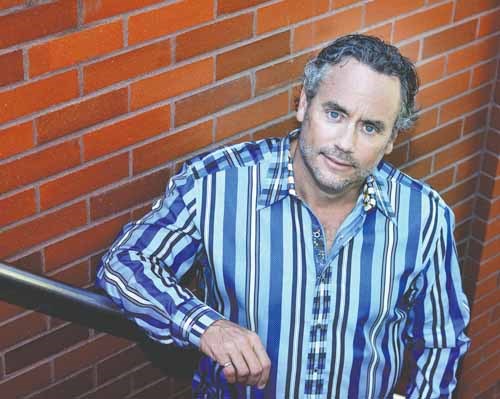I grew up in Saskatchewan, and like many people, I have a huge soft spot for my homeland. I have a tremendous amount of pride in my roots, and great respect for the people who pioneered this part of the world. In a relatively short time, those determined settlers - including my great-grandparents - helped turn the wild and rugged prairie into one of the greatest places to live on earth.
Growing up in North Battleford, a small city just North of Saskatoon, I witnessed incredible displays of community spirit from a host of people, but most notably from my own parents. My father, Bill Wilson, is a classic prairie gentleman. If a stranger were stranded with a flat tire, he was the guy who would pull over first to lend a hand. I once was with my Dad when he backed up 1/4 mile on a very muddy road just to follow a neighbor lady driving in another direction because he was worried she might get stuck and need help. My mother was equally inspirational. As a social worker, she was always doing what she could to help out the community - from volunteering for causes related to her children to taking in foster kids to teaching parenting classes. For my Mom, giving back was part of her DNA.
This commitment to community is a wonderful part of my legacy, and probably yours. You may be reading this in Kamloops, Kipling, or Calgary, but my guess is that we share a similar belief: that the real measure of success is not just about hard work and big rewards. It's also about giving back and taking care of the people around us. It's about our sense of community.
One of my favorite examples of great combined effort comes from my hometown. When I started to become more focused on personal philanthropy a decade or so ago, I realized I hadn't yet done anything substantive to give back to my birthplace - North Battleford - so I organized large (to me) donations to the both the local United Way and the Battlefords Union Hospital. It didn't take long to learn that my personal donation of $100,000 matched the United Way's entire fundraising goal for that year. Until then, I also learned, the biggest single donation the United Way had ever received was $5,000. I was dumbfounded. I knew that people in the Battlefords had wealth, but obviously they had never been given a vision for building their city through creative philanthropy. I believed there was a fair amount of money sitting under some mattresses in that town. And it was time to shake some of it loose.
I asked the hospital CEO what else was on his wish list and the request for four new anesthesiology machines caught my eye. The hospital had four operating rooms with four old units on site, but at least one unit was down for repairs at any given time. I told the hospital that I would give $300,000 toward the new machines, but they had to match my donation by raising $300,000 themselves. I didn't realize then that the most the hospital had previously raised during one campaign was $100,000.
The hospital accepted my plan, but wanted twelve months to raise the money. I thought for a few minutes and gave them three months. I can only imagine the nervous conversations that took place at BUH that day, but they called back the next morning and agreed to the three-month challenge. The "Dollar-for-Dollar" campaign was on.
It actually took less than three months for the city to meet - and exceed - their fundraising goal. They announced their victory on the local radio station at the end of a very touching multi-day radio-thon, and called me with the results: "Brett, we have met your challenge - in fact we blew through it - and have raised $500,000!" I was so moved by the way the community had come together to support the hospital that there was little I could do but match them - dollar for dollar - and up my donation to $500,000. The $1 million total tally was an incredible boost for the city, but the bigger impact came in terms of community engagement. To say the city and its citizens surprised themselves would be an understatement.
In my world, giving and getting definitely go together, but philanthropic giving can be more rewarding than you might expect. I'm quite candid about the fact that when I first started my career 30 years ago, my goal was simple: I wanted to make money - and lots of it. I wanted success, the big house, and a few nice toys in the garage. What I soon learned was that financial success can become surprisingly hollow. Ironically, philanthropic pursuits produce a much more satisfying return. So after spending many years focused on making money, I now spend as much - if not more - of my energy giving it away.
That's why I am constantly challenging people to think carefully about how we measure success. Earlier this year, the first World Happiness Report was released. It attempted to measure social and economic well-being around the world. Canada placed fifth. It came as a surprise to some people, but not to me, that a nation's happiness is not necessarily tied to its economy, but has more to do with things like personal freedom and strong social networks.
Business, entrepreneur and philanthropist Brett Wilson is publishing a new book in November. Entitled Redefining Success : Still Making Mistakes it will in bookstores this month. Brett Wilson authored this column in partnership with Glacier Media Group, which has extensive holdings in community media and business-to-business media across Canada.




